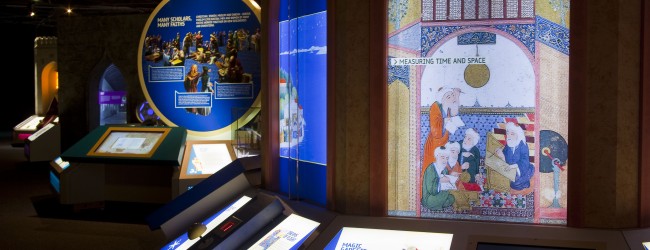
We have a lot of stereotypes among of which is that Muslim women are repressed and do not get a chance to reach their full potential in their chosen fields, especially in the science fora. The session on the growth of science in the Islamic world, at the Euroscience Open Forum 2012 in Dublin, sounded intriguing and interesting for me as a a woman science journalist.
The topic being addressed was about the social and political shifts in the wake of the regional revolutions we are witnessing, as well as studying the place that science, technology and innovation have in the growth trajectory of the Islamic world. Countries like Saudi Arabia and Qatar are pouring funds into universities and building technology parks. But what about countries like Indonesia and Egypt?
Both speakers at the session – Priya Shetty and Michael Bond, freelance science writers from London, had differing tales to tell. Shetty had done a three-month research project on the issue in Indonesia. She was eloquent about the beauty of Indonesia and the country’s natural resources, however she said her research showed that the country hadn’t caught up with the 21st century in terms of moving forward after President Suharto resigned in 1998. “Indonesia lags behind other ASEAN countries, in fact after President Suharto, the country’s progress has gone into a tailspin and the development has stopped for the last 20-25 years. Indonesia isn’t getting it right and there is a big disconnect between policies and implementation,” revealed Shetty.
Is Indonesia Suffering?
She went on to say that Indonesia just produces and exports its raw materials, and research is at a very basic level. If anything, she said scientists are totally neglected and if anyone goes abroad on a government scholarship, they are expected to come back and work twice as long as their stay abroad for the country.
When they return they get meager salaries, as low as $500 a month, so they are forced to take side jobs to survive.
Strangely, Shetty said there are 3,500 universities in Indonesia, but of a very low standard. PhD seats have also increased, but the government has revoked the autonomy of the universities and researchers are concerned, as everything is to pass through the government watchdog.
With regard to the gender issue, Shetty said both men and women are treated equally in Indonesia but there is no support for women scientists who become mothers. That is why most women don’t opt for the hard sciences like physics and engineering. Women have to always rely on their families for support. There are also barriers to innovation with very few collaborative projects between the government and industry.
Shetty said there are certainly a number of success stories with private funding especially in the IT sector which has doubled since 2005. Foreign companies like Ericsson and Vodaphone have set up shop, and moreover, nanotechnology is also growing. But the conclusion of her research showed that, on the whole women researchers aren’t in a very favourable climate in Indonesia,
What about North Africa’s Powerhouse?
Michael Bond said that the situation in Egypt was full of hope immediately after the revolution, as academics and students were fully optimistic about the future being better after toppling President Mubarak, but this was to be followed by a strange sense of resignation that corruption still exists and nothing would change. On his behalf, the new President Mohamed Mursi has pledged to improve research and development in the country, and ramp up the funds to 40% more.
According to Bond, food, hygiene, Hepatitis C and vehicular traffic are the biggest stumbling blocks in Egypt today. With democracy there is hope for science and academia to progress rapidly.
However the biggest hurdle is that the youth lack the capacity for critical thinking now that people have found their voice. It will take a few years to rectify that and open the voices of the scientific community, he said.
However, Doaa Samy, a professor at Cairo University, objected to the gloomy picture painted by the speakers, and saw this as incorrect. The same view was also provided by Hanan Dawidar, a research scholar from Egypt, who has studied in Egypt in the recent past and now moved base to New York.
Finally, Reem Awad, the head of communications at the Ministry of Scientific Research in Egypt, sees the climate for women researchers in Egypt very thriving and quite encouraging, in contrast to what other speakers have mentioned. “We have a lot of women in science,” said an elegantly dressed Awad, “and our numbers are growing everyday.”
So all this means that there is a sense of hope and a lot of progress taking place, as attested to by most women attending the conference.. That is all what matters most now to help us get rid of those stereotypes.
Egyptian Universities: Toward a Hopeful Future
Egyptian Student Invents New Propulsion Method
You must be logged in to post a comment.